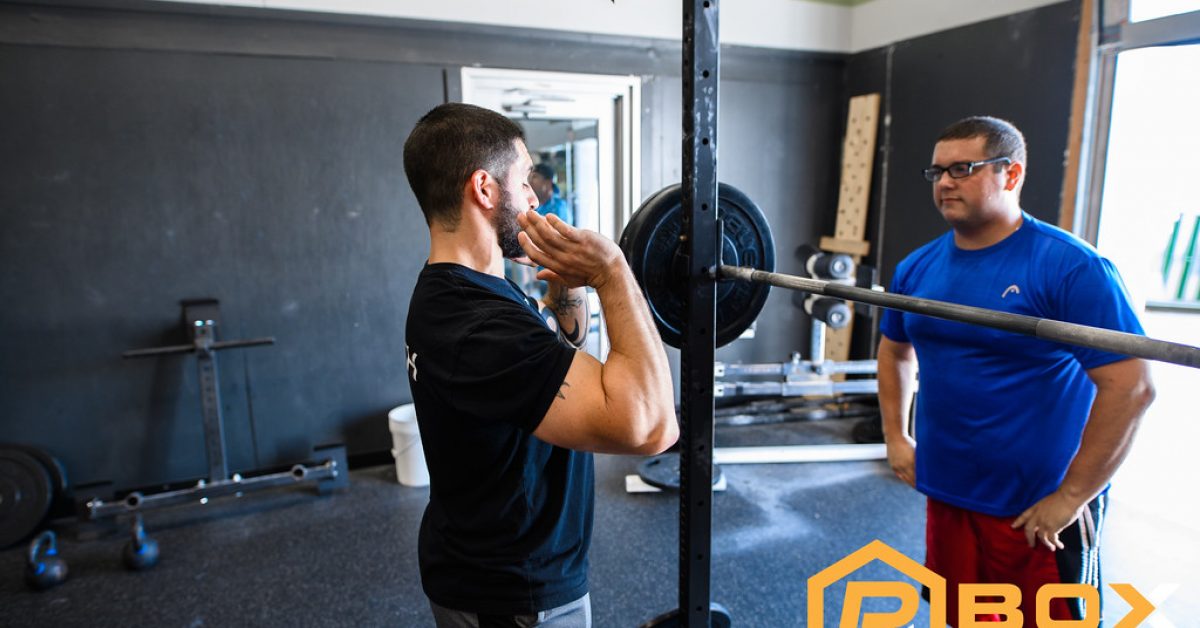Many of us have been in the situation of coaching a client when the thought crosses our minds as to whether or not the coaching cues we are using to improve the quality of someone’s movement are going to be perceived negatively.
Let me explain:
We use the Dynamic Effort Method in a group setting regularly. The reasons are threefold:
- It provides a symbiotic relationship with our max effort work which helps us avoid overtraining.
- It teaches people how to be more aggressive/explosive by improving the rate of force development.
- It acts as a teaching tool in a group setting during which our focus is on bar velocity/movement efficiency and NOT loading.
Even with the prescription of light loads (less than 70% of one’s 1RM), some athletes just cannot move fast. Put simply, your more enduring athletes who lack the fast-twitch muscle fiber may be limited by their genetics and training history, so using a cue or dropping the loading may or may not help.
The question is if you have these athletes drop their loading even more than the prescribed percentage, will this serve as a detriment to this athlete or improve their performance?
It can certainly go both ways, but one thing we must always be mindful of is the psychological aspects of our coaching cues and feedback.
For some, dropping the load may still not facilitate the change we are looking for, and in this case, most will be limited by their genetics. The question becomes, is the athlete’s mental state more important than their training effect?
So what is the best course of action? As coaches, we have to tailor our approach to each individual based on their personality. We also need to consider our clients’ background; you see your athletes move daily so it should be no mystery as to which athletes represent explosive qualities and enduring qualities.
This will allow you to make adjustments during a training session to ensure not only that your athletes are receiving the correct training effect, but also that they are leaving feeling like they got a “win.”
Some coaches may think “tough love” is the way to go, and that “if we cannot give our clients feedback, then why are they paying for our service in the first place?”
I agree and disagree.
Not every person who walks through your door (albeit they are paying for your service/coaching) will be receptive to feedback. Hell, taking criticism is hard for most people so tailoring your approach will serve you better and likely create more trust between you and your clients.
The power of listening
You can probably count on one hand how many truly gifted listeners you’ve met in your life. I’ll admit this is something I sucked at for the better part of my coaching career, but stopping the train of thought in your own head and trying to see things from your clients’ point of view may allow you to give them the tools that will take them to the next level.
Throughout your time coaching your athletes, you’ll be presented with many opportunities to learn something about your clients that will help you help them! As a result, you’ll have more information at your disposal to use when it comes to your clients’ needs, abilities, goals, and limitations, all of which is going to lend itself to the bigger picture of consistent progress and longevity in your facility.
Future Considerations
- Make time to listen to your clients. Always. The amount of insight you’ll receive will take your coaching to the next level and also instill your clients’ trust in you as their coach.
- The proper training effect is essential, but the empowering your clients and improving their mindset may be even more important.
- Consider where your client is limited; is it something that can be corrected on the spot or is it something bigger like a genetic limitation?
- Your clients deserve a “win” from time to time. We all know how difficult training, eating healthy, and being patient is. It’s far too easy to look at the downside vs. the upside.
In short, effective coaching entails being a movement specialist, a psychologist, and an emphatic listener. Much like it’s important to not have in holes in your game as an athlete, figure out where you’re weakest as a coach and work on it just like you would one of your weaknesses in the gym!


